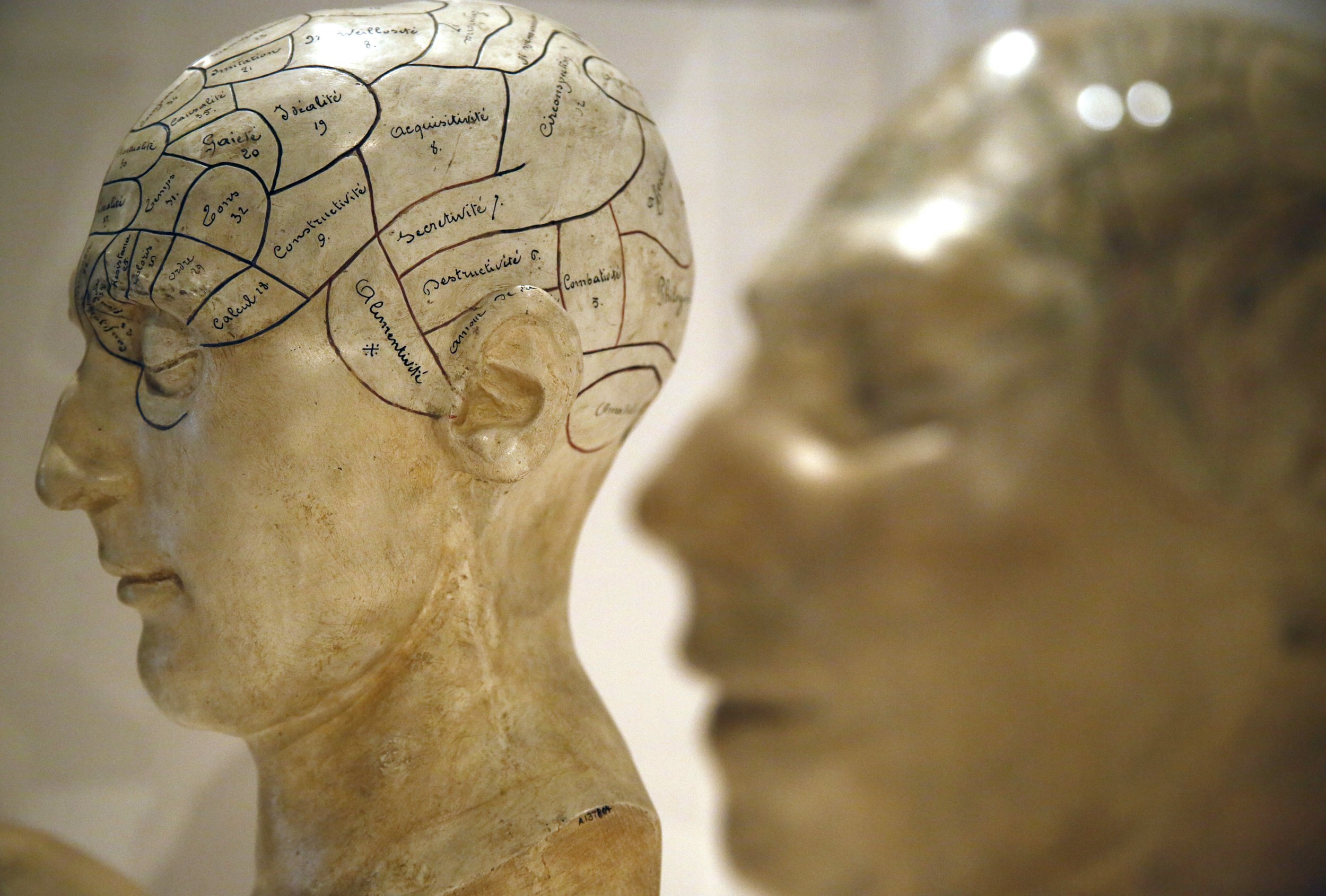
It may be possible to really know what another person is thinking—at least with the aid of new experimental technology. Researchers at the University of Washington have figured out a way to connect the brains of two people via the Internet and play a game of "20 questions" without even speaking.
To conduct the experiment, the first participant—the one tasked with answering questions, or the "respondent"—put on a cap connected to an electroencephalography (EEG) machine that records brain wave activity. Researchers showed the respondent photos on a computer monitor of common objects, such as a dog, and instructed the respondent to pick one.
Then, in a different, darkly lit lab almost a mile away, they provided the other participant, known in the study as the "inquirer," with a list of those objects. The inquirer was told to ask a series of predetermined "yes" or "no" questions to help figure out the object that the responder had selected—for example, "Can it fly?" or "Is it a pet?"
The inquirer would send over a single question by clicking on it with a mouse, and the respondent answered yes or no by simply focusing on one of two flashing LED lights connected to a computer monitor. Then the respondent's answer, in the form of a signal, traveled via the Internet back to the inquirer. This activated a magnetic coil placed behind the inquirer's head. A "yes" prompted a response strong enough to stimulate the visual cortex of the brain; a "no" did not. This pressure placed on the visual cortex caused a flash of light in front of the inquirer's eyes. The flash is called a "phosphene," and it creates a disturbance in the person's field of vision. The presence of the phosphene provides clues to help the inquirer determine the object the respondent is looking at.
The researchers found that participants guessed 72 percent of the answers in these real games correctly, compared with 18 percent in the control games. (The control games worked the same way, except the researchers added plastic to the coil to dull the magnetic fields so as not to actually stimulate the visual cortex in the case of "yes" answers.)
The findings of their experiment were published Wednesday in PLOS One. Five pairs of participants each played 20 rounds of the game (10 real games and 10 controls). Each round included eight objects with three questions allotted for each item. Several measures were taken to ensure participants weren't able to cheat or become distracted. The inquirers wore earplugs so they were unable to hear the noise from the magnetic coil around their head, and the researchers also changed the intensities of stimulation to limit the possibilities that the sound from the coil could provide clues. The researchers also changed the position of the coil for each game.
Similar experiments that link two brains have been conducted on animals such as rats and monkeys. Another project involved transmitting brain signals from humans to rats. In that study from Harvard University, the brain signal from the human was directed toward the motor cortex of a sleeping rat, causing the rodent to move its tail. The researchers found the human was able to control the rat's tail movement 94 percent of the time.
Besides being sci-fi cool, this area of research has potentially powerful real-life implications that go beyond the concept of creepy mind control. "Imagine having someone with ADHD and a neurotypical student," co-author Chantel Prat, a faculty member at the Institute for Learning & Brain Sciences and a University of Washington associate professor of psychology, said in a statement. "When the non-ADHD student is paying attention, the ADHD student's brain gets put into a state of greater attention automatically."
Prior experiments conducted by Prat and others on his team include creating technology that allows a person to activate devices with their mind or remotely control the hand movement of another person.
Uncommon Knowledge
Newsweek is committed to challenging conventional wisdom and finding connections in the search for common ground.
Newsweek is committed to challenging conventional wisdom and finding connections in the search for common ground.
About the writer
Jessica Firger is a staff writer at Newsweek, where she covers all things health. She previously worked as a health editor ... Read more





